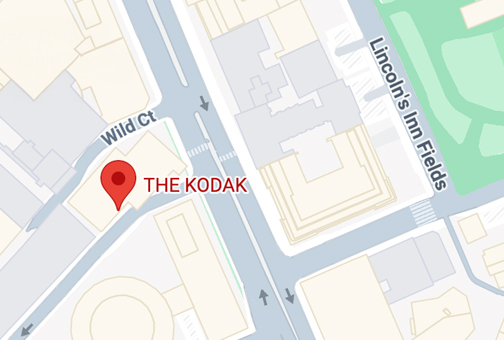Did you ever imagine you would hear a Conservative chancellor say, ‘We will be judged by our capacity for compassion’?
Rishi Sunak rightly described this as a generation defining moment where we should be able to look back and remember how we undertook a collective national effort and stood together.
We will be judged by our actions.
“Media, advertising and brand behaviour are crucial if we are to reduce the human misery.”
While the ‘woke movement’ has absolutely been a force for good, predictably it has been accompanied by a wave of woke wash. The brilliantly intentioned International Women’s Day was accompanied by a blizzard of vacuous virtue signalling.
Well you can’t wash a crisis. They are ugly. They demand action. They are a time when authenticity and purpose are put to the test through action.
Media, advertising and brand behaviour are crucial if we are to reduce the human misery. Never has a change in people’s behaviour such as social distancing, or looking out for others, been such a determinant of success or failure. This is the power that our industry has – we are in the business of changing behaviours.
This is the acid test for great companies, great people and genuine purpose.
Fantastic brand exemplars are emerging. LVMH committing to creating 40 million face masks, Tesco raising staff pay for those keeping us fed on the front line, Vue retaining staff despite revenues going through the floor.
“How will the advertising business step up, maybe momentarily resisting the competitive urge?”
Conversely, we are all witnessing the almost instant damage of potentially failing to act in spirit of a stated brand purpose, as Virgin Airways and their brand ‘icon’, Richard Branson, were accused recently.
How will agencies step up? Indeed, how will the collective advertising business step up as one, maybe momentarily resisting the competitive urge?
In Spain a group of 35 Spanish agencies, including offices of major networks BBDO, DDB, Saatchi & Saatchi, Ogilvy and McCann, have come together with five marketing associations in an initiative to support brands in tackling the pandemic.
Again conversely, how should we respond to what looks like bad, or maybe just plain stupid, behaviour? Last week, Kraft Heinz announced a major $600m pitch stating it was ‘exploring opportunities for its global media planning and buying operations to ensure we are positioned for success in 2021 and beyond’
To be clear I have no knowledge of the background to this, but with home working, governments closing borders, staff looking after their families, at the very least this looks ‘odd’. One has to ask what are their pitch advisors actually advising. It reminds me of an epic version of calling a pitch just prior to Christmas. The decision to pitch or not at this time could be the measure of the holding company bosses as to what they value.
The media are in the main responding with a heightened responsibility, promoting social distancing with great energy. However, this crisis calls for more than incremental steps and playing by the business as usual rules.
“The decision to pitch or not could be the measure of the holding company bosses as to what they value.”
Social media can be a powerful force for good at these times, traffic has increased dramatically.
Facebook recently stated, ‘We’ll continue to prioritise imminent harm and increase our reliance on proactive detection in other areas to remove violating content’. As experts of the Mea Culpa, they also went with a pre-emptive; "We will inevitably make mistakes, so we ask for patience as we navigate this challenging time’.
To give Facebook credit, when it was discovered that fake news was being spread by ‘texts’ on the various messenger services, that went unnoticed for a while thanks to end to end encryption, Whatsapp moved to limit the number of messages sent from a single source, to remove the virality. Apple iMessages appeared to move less rapidly.
However today we are dealing with mass anxiety and scaled mental health challenges. Most algorithms remain focused on generating maximum traffic of course, but therefore are still in danger of taking the user down a rabbit hole of ever more depressing content. This does not have the effect of changing behaviour, it simply creates a feeling of helplessness or worse, depression. While overseeing the efficacy of content is great, what can be done to limit ‘frequency’ and thereby help protect people’s mental state?
“Tech platforms that help slow the pandemic will surely be rewarded in the future.”
Another question will surely be asked namely how are the incremental profits created in sectors that are ‘benefitting’, such as e commerce, going to be used? Further enriching founders and major shareholders might not read well. The Jack Ma Foundation and Alibaba have shown some real leadership by implementing a medical supplies programmes and using their expertise to create an AI powered medical expert platform.
Tech platforms that move beyond content policing to actively engineering better audience experiences that help slow the pandemic will surely be rewarded in the future.
We, in advertising, media and brand building really do have power to create positive change, and equally to penalise poor and exploitative behaviour. With our trust quotient amongst the public at an all time low, there is not only a moral obligation but also the opportunity to show that we really are here to serve people, consumers and audiences.
This article originally appeared on Campaign’s website, 24 March 2020











